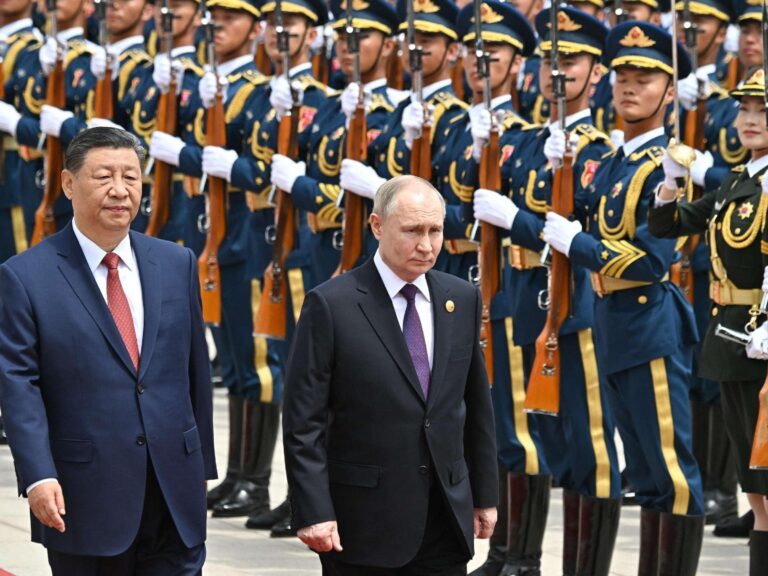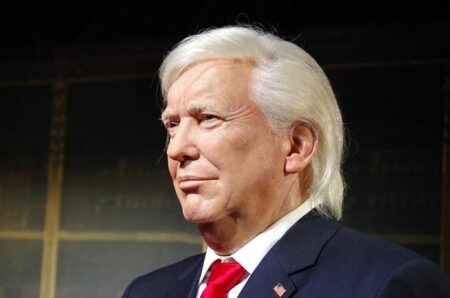In an unexpected turn of events, Chinese President Xi Jinping will be absent from this year’s China-backed BRICS summit, marking the first time he has missed the gathering since its inception. The BRICS alliance-comprising Brazil, Russia, India, China, and South Africa-has long showcased Xi’s prominence on the global stage, underscoring China’s growing influence in the group. His absence raises questions about the shifting dynamics within the coalition and the strategic calculations behind Beijing’s decision. This article explores the reasons behind Xi’s withdrawal and the potential implications for BRICS and international geopolitics.
Xi’s Absence Signals Shifts in China’s Global Strategy at BRICS Summit
At the recent BRICS summit, the absence of President Xi Jinping marked an unprecedented moment that has left international observers contemplating the underlying shifts in Beijing’s diplomatic priorities. Traditionally a staunch advocate for leveraging BRICS as a platform to counterbalance Western influence, China’s decision to forgo direct leadership presence hints at a recalibration of its global strategy. Analysts suggest this move might reflect a strategic pivot towards more selective engagement in multilateral forums, focusing instead on deepening bilateral economic partnerships and securing technological self-reliance amid escalating geopolitical tensions.
Key factors contributing to Xi’s absence include:
- Increasing focus on domestic economic stabilization and reform efforts.
- Growing complexities in managing relations within the diverse BRICS bloc.
- Heightened scrutiny from Western nations, prompting a more cautious diplomatic stance.
| Aspect | Implication |
|---|---|
| Diplomatic Signaling | Shift towards silent diplomacy |
| Economic Focus | Prioritizing internal reforms over multilateral commitments |
| Geopolitical Calculus | Reducing exposure to BRICS factionalism |
Analyzing the Political and Economic Implications of Xi Skipping the China-Backed Gathering
Xi Jinping’s unprecedented absence from the BRICS summit-an event historically showcasing China’s leadership in shaping global economic narratives-signals a recalibration in Beijing’s foreign policy strategy. Analysts suggest that this move could be attributed to a confluence of internal priorities and geopolitical tensions, especially amid the increasing pushback from Western powers and shifting alliances within emerging economies. Xi’s decision may also indicate a strategic pause, allowing China to reassess its influence within the group against the backdrop of economic headwinds and evolving diplomatic challenges.
The implications extend beyond diplomatic optics, touching on significant economic calculations. China’s role as a primary financier and trade partner for many BRICS members means that Xi’s absence could slow momentum on key initiatives, including the expansion of alternative financial institutions aimed at counterbalancing Western dominance. Key consequences to watch include:
- Delays in the New Development Bank’s fundraising efforts, potentially impacting infrastructure projects across member states;
- Uncertainty around coordinated responses to global economic pressures, especially currency stabilization and trade agreements;
- Signals to global markets regarding China’s willingness to engage multilaterally, with possible ripple effects on investor confidence.
| Potential Impact | Short-Term | Long-Term | ||||||||||||
|---|---|---|---|---|---|---|---|---|---|---|---|---|---|---|
| Diplomatic Influence | Diminished visibility | Potential power shift within BRICS | ||||||||||||
| Economic Projects | Possible project delays | Recommendations for BRICS Members Navigating a Changing Leadership Landscape
As the BRICS coalition enters a new era of leadership dynamics, member states must proactively adapt to shifting geopolitical currents. Prioritizing strategic communication channels will be crucial for maintaining cohesion amid diverse national interests. Cultivating a culture of transparent dialogue helps mitigate tensions and facilitates consensus-building on key economic and security agendas. Additionally, members should explore innovative collaboration models that leverage technological advancements, ensuring the bloc remains agile and competitive on the global stage. To effectively navigate these complexities, BRICS members can benefit from specific measures designed to reinforce unity and sustain momentum:
Insights and ConclusionsXi Jinping’s absence from the China-backed BRICS summit marks an unprecedented moment in the group’s history, signaling potential shifts in China’s approach to multilateral engagement and regional leadership. As the global political landscape continues to evolve, analysts will be closely watching how this development influences BRICS dynamics and China’s broader diplomatic strategy moving forward. |




